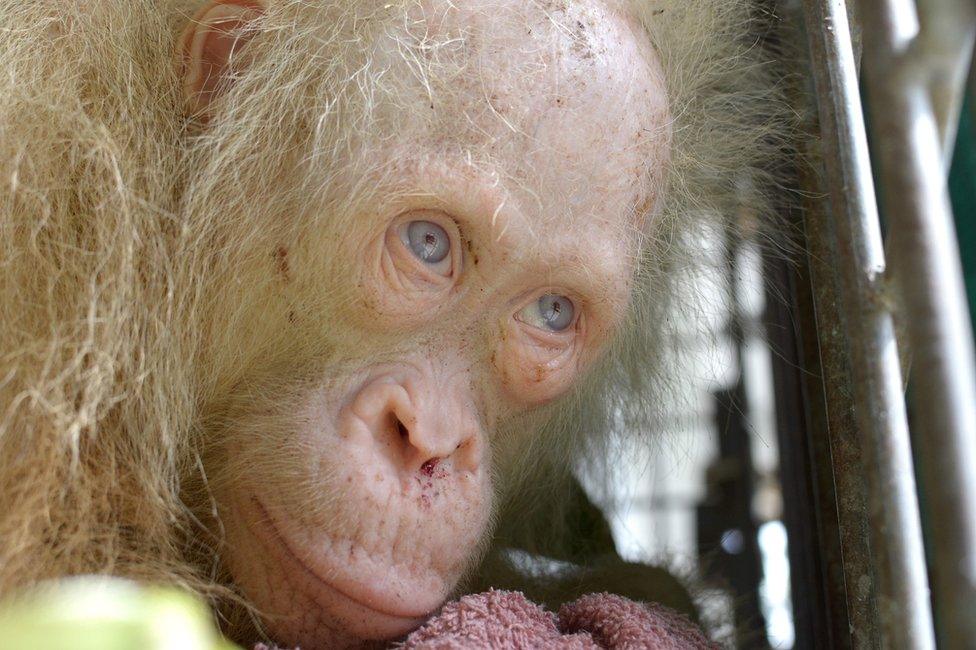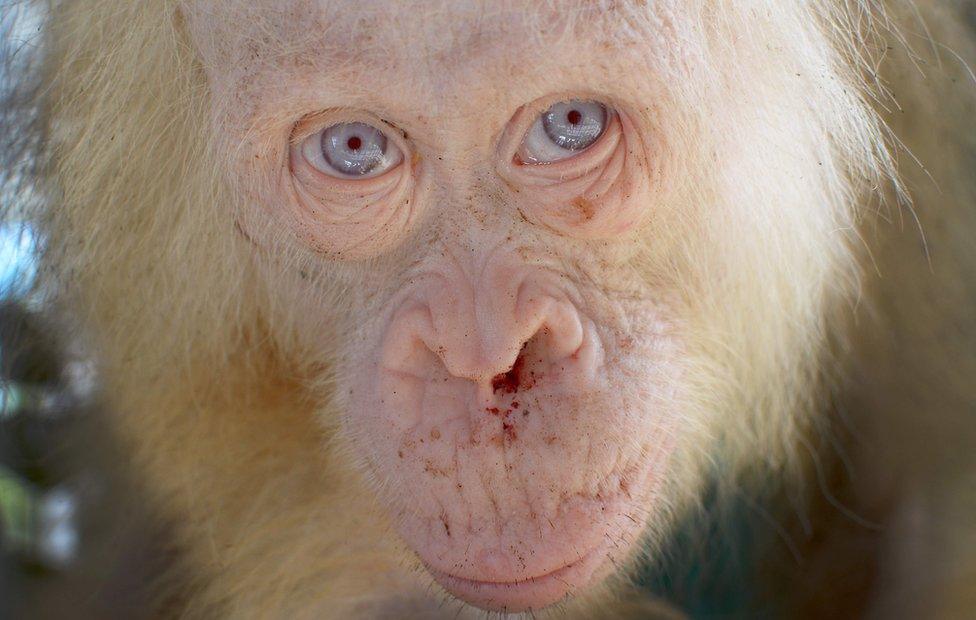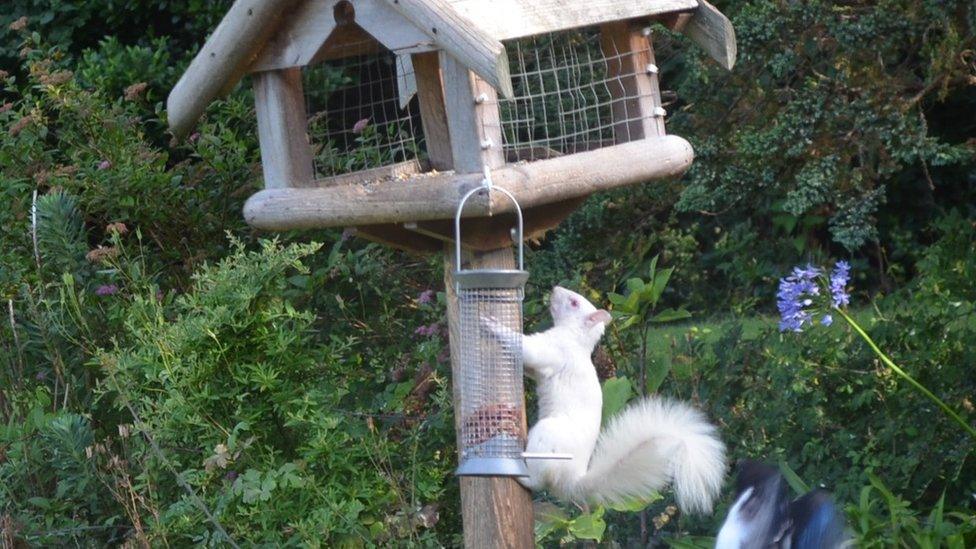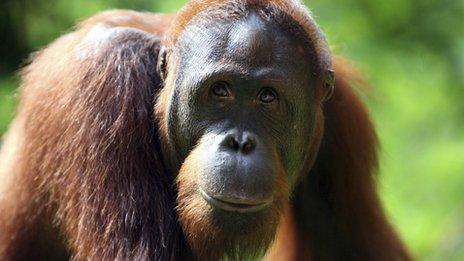Albino orangutan rescued from captivity in Indonesia
- Published

Bornean orangutans are classified as "critically endangered"
A rare albino orangutan is being cared for by an animal protection group in Indonesia after being rescued.
The white-haired and blue-eyed female orangutan was being held captive in a remote village in the Indonesian part of the island of Borneo.
It had been held in a cage for two days and "still displays wild behaviours", the Borneo Orangutan Survival Foundation said.
The animal could soon be released back into the wild, the group said, external.
'Sensitive to light'
Albino orangutans are extremely rare and this is the first taken in by the organisation in its 25-year history, BOS Foundation told AFP news agency.
The group said it had determined the animal had albinism after physical examinations, saying its eyes were very sensitive to light.
The animal, believed to be five years old, is being assessed at the group's rehabilitation centre, home to nearly 500 orangutans.
Bornean orangutans are classified as "critically endangered" by the International Union for Conservation of Nature (IUCN).
Their populations decreased by more than 60% between 1950 and 2010, due to the destruction of their habitat and hunting, and a further decline of 22% is expected between 2010 and 2025, the IUCN says.

The animal had dried blood around its nose and may have sustained the injury while fighting off villagers who captured it
Around 100,000 orangutans are estimated to live on the island of Borneo, which is split between Malaysia, Brunei and Indonesia.
There may be more albino orangutans on the island, the BOS Foundation says.
"There must be orangutans living in the forests from whom the albino orangutan inherited the disorder, for it is genetic," CEO Jamartin Sihite was quoted by the Jakarta Post newspaper as saying.
- Published29 July 2016

- Published29 September 2016
